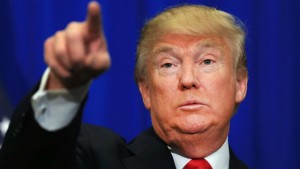Home » Commentary » Opinion » The fire behind that phone call smoke
· AUSTRALIAN FINANCIAL REVIEW
 The Mueller investigation is over. It finished in March when the probe into Russia’s meddling in American politics found no evidence of collusion between Moscow and the Trump election campaign in 2016.
The Mueller investigation is over. It finished in March when the probe into Russia’s meddling in American politics found no evidence of collusion between Moscow and the Trump election campaign in 2016.
After two years of investigations with all manner of subpoenas, interrogations, witnesses and grand jury testimonies, Mueller concluded there was, as they say in Washington, “no there, there”. It was “complete and total exoneration”, boasted Donald Trump on the day of the report’s release.
So why has the US Justice Department sought the co-operation of foreign governments into finding out the origins of the Russia probe? And why does the President want Scott Morrison’s help in getting to the bottom of what happened in 2016?
Because Trump and millions of Americans have long been keen for an honest accounting of the FBI’s spying on the Trump campaign in 2016. Indeed, we still don’t know why and when precisely a US intelligence and law-enforcement agency came to spy on a presidential campaign.
Officially, the probe began on July 31, 2016 when Alexander Downer, our high commissioner to Britain and former foreign minister, tipped off Australian intelligence with what would become a bombshell revelation: that low-level Trump adviser George Papadopoulos had told Downer over drinks on May 6, 2016 that Russia had compromising information on Hillary Clinton.
After the Wikileaks dump of Clinton emails in July 2016, Canberra informed Washington, which apparently sparked the FBI investigation into Trump’s alleged ties with the Kremlin.
The key question at the heart of the investigation was not whether the Russians had dirt on Clinton, including damaging emails. The issue was whether the Trump campaign was working with Russian officials to acquire and disseminate information about her that could be used to tilt the 2016 election.
The Downer revelations provided no evidence of collusion. In any case, Downer himself was never interviewed by the Mueller inquiry and the name Downer is confined to a few brief references in the final report.
How then to account for the FBI’s decision during the Obama administration to open a counterintelligence operation against the Trump campaign?
That’s an entirely legitimate question. As the Wall Street Journal has editorialised: “Americans need to know the real story, not merely the one leaked to a sympathetic media by former FBI and Obama administration officials.”
Do the answers lie in understanding more about Fusion GPS, the opposition research firm that Democrats used to flog dirt about Trump and Russia?
Or what about former British spy Christopher Steele’s notorious dossier, supposedly based on Russian sources, which drove media hoopla about Trump-Russia collusion? It formed the basis for a Foreign Intelligence Surveillance Act warrant to spy on the Trump campaign, yet it was eventually shown to be full of wild, discredited and unsubstantiated claims about Trump’s ties to the Kremlin.
Would there have been any surveillance warrants and ambush interviews for Trump aides if the dodgy Steele dossier had never existed?
Did the FBI, led by a small number of officials under former director James Comey, take sides in a presidential election based on foreign propaganda sexed up by the opponents of Trump? What was the nature of the relationship between the FBI and former CIA Director John Brennan and the Obama White House?
The Mueller report shied away from these questions, but it is legitimate for some body in government to investigate the investigators. Indeed, it’s been well known for months that the Justice Department has been bent on investigating what happened in 2016.
It is also standard practice for US prosecutors to seek help from foreign governments. So, for Attorney General Barr to consult the Australian or any other government or Trump talking to Morrison about these matters is not a problem.
However, Trump putting the strong arm on the Ukrainian president to help him win in 2020 is a different matter altogether. It was poor judgment, perhaps illegal, and very different from the conversations regarding the origins of the Russia probe.
The problem is such distinctions are difficult to make in Washington’s super-heated political environment.
The sad reality is that many Democrats and their media mates have never accepted Trump’s shock election victory in 2016. By trying to blend the 2016 Russia probe and the 2019 Ukrainian call together, Trump’s opponents are showing their motivated bias. That just makes the polarisation that engulfs Washington even more toxic.
Tom Switzer is Executive Director of the Centre for Independent Studies
The fire behind that phone call smoke